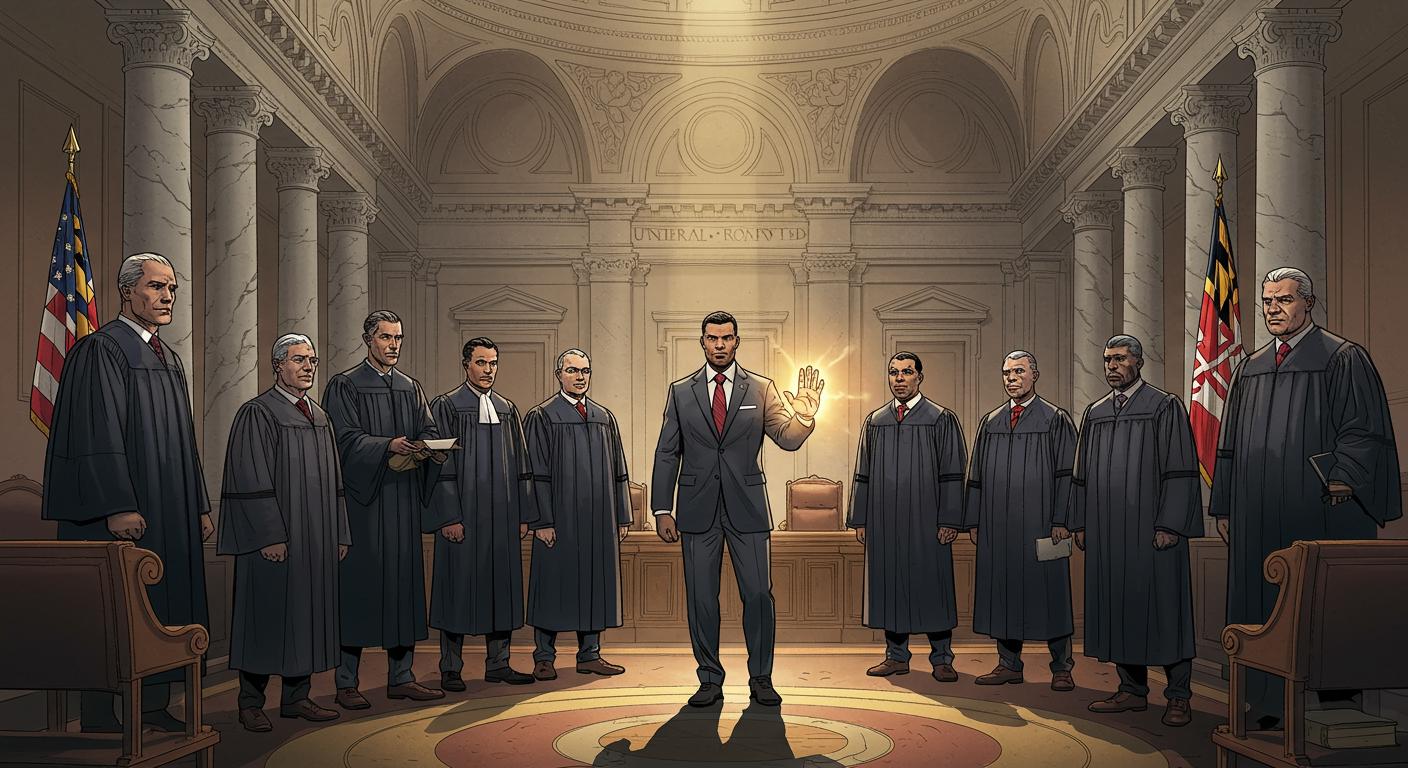Every now and then, the legal system produces a spectacle so singular that you wonder if someone slipped a plot twist into federal procedure while no one was looking. This week’s entry: the Department of Homeland Security and Justice Department jointly suing every single federal judge in Maryland’s district court over the court’s temporary pause on certain deportations. Yes, all fifteen judges—no subtlety, no half-measures. It’s the kind of thing that, if scrawled in the margins of a dusty law textbook, would have been dismissed as judicial fan fiction.
When the Filings Outpace the Filing Cabinets
The heart of the issue, as Fox News reports, is a surge in habeas corpus petitions. These legal filings—often submitted by detained immigrants—argue that the government has no legal right to keep someone locked up or to deport them. Lately, Maryland’s federal court has been getting swamped with such cases: many arrive outside business hours, during weekends, or possibly in that no-man’s-land when “late Thursday” quietly becomes “early Friday.”
To keep chaos in check, Chief Judge George Russell issued a standing order in May. The order directs clerks to issue a two-day administrative injunction on the spot whenever these petitions land, preventing deportation or changes in legal status until the paperwork can get at least a preliminary look. As described in the court’s own order, this move was in response to “scheduling difficulties” and the challenge of “obtaining clear and concrete information about the location and status of the petitioners,” particularly when cases come in after hours. The goal: maintain the “status quo” long enough to avoid snap decisions or missteps.
This approach might seem like common sense to anyone who’s ever handled a traffic jam of paperwork. Yet, attorneys for the Trump administration, in freshly filed complaints, argue otherwise. The DOJ blasted the Maryland court’s policy as “nothing more than a particularly egregious example of judicial overreach interfering with Executive Branch prerogatives—and thus undermining the democratic process,” as detailed by My Ozarks Online. The complaint scolds the judges for allegedly prioritizing “frustration and a desire for greater convenience” over lawful process, and for reducing the Executive Branch’s ability to enforce policy in real time.
All Rise—And Recede From the Case?
Of the many oddities here, perhaps the most eyebrow-raising is the government’s next request: since all Maryland district judges are defendants, DOJ attorneys want every one of them to recuse themselves from the proceedings entirely. The hope is that a judge from another district, or even the appellate-level 4th Circuit, will be brought in to referee. This procedural knot, as noted by both Fox News and My Ozarks Online, leaves the court in an extraordinary position—essentially defending not just a ruling, but the functional logistics of the courthouse itself.
The administration contends that the two-day stay acts as a functional injunction without meeting the legal bar for one, as My Ozarks Online documents. They argue that inconvenience and scheduling headaches don’t justify temporary freezes on government action. According to their complaint, “Inconvenience to the Court is not a basis to enter an injunction, and filings outside normal business hours, scheduling difficulties, and the possibility of hurried and frustrating hearings are not irreparable harms.” Meanwhile, the court maintains the move is principally about avoiding rushed errors at the height of after-hours filing chaos.
Is the two-day delay an overstep, or simply administrative care? The courtroom lights are burning, but there’s not much precedent to read by.
Bureaucracy Meets Human Drama: Kilmar Abrego Garcia
For all the procedural acrobatics, the real-world stakes pop into focus with cases like that of Kilmar Abrego Garcia. Detailed in both source articles, Garcia was wrongfully deported to El Salvador last March before his legal challenges had concluded. Judge Paula Xinis, herself now a named defendant, ordered the Trump administration to retrieve Garcia, leading to an international back-and-forth. Fox News highlights that this was the first known instance in which the Trump administration erroneously deported someone before due process played out. My Ozarks Online adds that the case reached the U.S. Supreme Court, which ultimately affirmed Judge Xinis’s order and required Garcia’s return to the United States.
However, bureaucracy’s wheels don’t coast to a stop. After his return, Garcia was quickly re-booked to face new federal charges on human smuggling—a detail that underscores the complex and sometimes circular journey of those caught in the system. The outlet also notes that Judge Xinis permitted discovery to determine if the administration had dragged its feet in complying with the order to return him.
Cases like Garcia’s demonstrate why the two-day pause order might feel, at minimum, like a necessary speed bump rather than a roadblock. One wrong move—especially under “hurried and frustrating” conditions—can escalate from administrative error to international incident in the blink of an eye.
A Most Unusual Standoff
Through all this, it’s hard not to be struck by the sheer novelty. As the DOJ’s complaint puts it—reported by My Ozarks Online—every order that “robs the Executive Branch of its most scarce resource: time to put its policies into effect,” in their view, is an affront to the voters’ will. Meanwhile, the court, in its own standing order quoted by Fox News, frames its pause as a plain-sense response to being inundated with urgent filings.
The larger question seems both oddly technical and deeply philosophical: who decides the tempo of justice? Is two days of breathing room a bridge too far, or just the minimum necessary to avoid shipping people out of the country before the ink is dry on their petitions? When bureaucratic overload and constitutional powers square off, do we default to efficiency at all costs—or to double-checking, even if it slows things down?
This unusual legal showdown feels both immense and mundane, a clash of principles launched by the humble problem of after-hours paperwork. The Maryland judges weren’t attempting a constitutional crisis—just, by their own account, trying to keep up. But as these cases make clear, sometimes the pressure of routine can spark the truly extraordinary. In the halls of Maryland’s district court, the next chapter of American legal strangeness is unfolding; whether it’s a cautionary tale or just another (very weird) day at the office remains to be seen.







